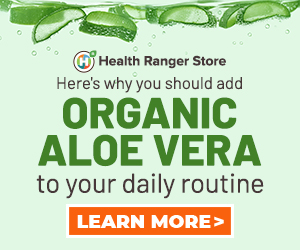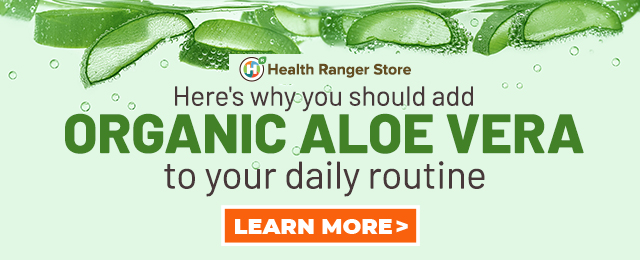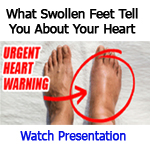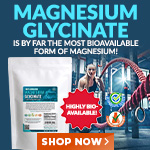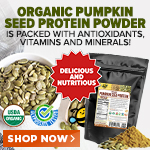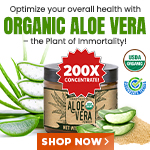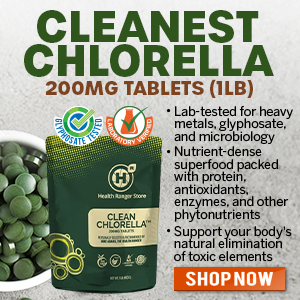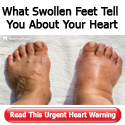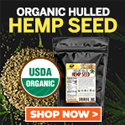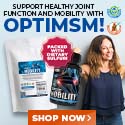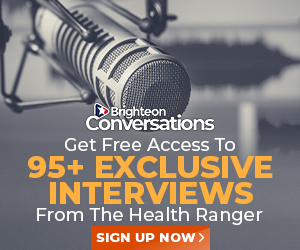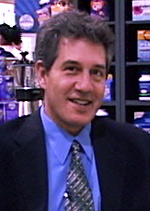
Interview with Dr. Dennis Goodman on how to naturally lower LDL cholesterol and raise HDL cholesterol
 Monday, August 21, 2006 Monday, August 21, 2006by Mike Adams, the Health Ranger Editor of NaturalNews.com (See all articles...) Tags: HDL cholesterol, natural medicine, LDL cholesterol |
- Hidden poison in your medicine and supplements: How phthalates in capsules are silently attacking your heart, thyroid, and hormones
- When the storm brings spies: How a top weather app became an agent of surveillance
- Hidden betrayal: Moderna and Pfizer shots hijack immune cells to rewrite mRNA, prolonging spike protein production
- Lard: A highly nutritious but misunderstood superfood
- Judge rules Kansas vaccine lawsuit against Pfizer must proceed in state court
- Health Ranger Report: Dr. Alphonzo Monzo discusses nanotechnology, 5G and the weaponization of health
- CLIMATE PONZI SCHEME DENIED: Trump begins the exit of the BIGGEST WASTE of money, resources and human lives ever and the climate alarmists are freaking out
- Breakthrough study reveals how Epstein-Barr and a gene variant heighten multiple sclerosis risk
- The mouth-brain connection: Could dental health guard against dementia (and vice versa)?
- EU court exposes secret Pfizer deal, orders von der Leyen and Bourla to reveal concealed texts
- Pfizer’s election meddling exposed: Top scientists weaponized science to sway the 2020 vote, so they could benefit from unlawful mandates
- Rudolf Breuss introduces a natural approach to treating cancer and chronic illness in “The Breuss Cancer Cure”
- Thwarted ISIS plot on Michigan military base highlights ongoing domestic terror threat
- X-class solar flare sparks worldwide disruptions, with more storms expected as sunspot turns toward Earth
- Coinbase faces $400M fallout after insider-led phishing attack exposes customer data
- From lifesaving to life-threatening? Study finds CT scans could be causing cancer
- The water cure: Unveiling the hidden link between dehydration, obesity, cancer and depression
- FDA considers overhaul of infant formula requirements amid growing concerns over nutrition and safety
- WAR ON COGNITION: The Coordinated Assault on Your Brain and How to Defend Yourself Against Every Attack
- Singapore's draconian vaccine mandate: Citizens face jail time for refusing FORCED medical procedures that do HARM
- Big Pharma's Dirty Secret: How Prescription Drugs Are Starving Your Body of Essential Nutrients
- Canada's COVID cover-up: Health officials swore secrecy to protect Trudeau from vaccine scandal
- RED ALERT: Nuclear War Between India and Pakistan Could Trigger Global Catastrophe… full RISK ANALYSIS
- JESUS NEVER SPOKE ENGLISH: Historical facts on why the Bible you’re probably reading has been altered, redacted or hidden from much of its original meaning
- Gene-edited pork sneaks onto your plate: FDA quietly approves CRISPR pigs amid health and ethical concerns
- Silent catastrophe: COVID-19 vaccines linked to plummeting fertility rates, Czech data reveals
- Why All Government Officials and Big Tech CEOs Who Engage in Systematic Viewpoint Censorship Must Be ARRESTED, Prosecuted, and Sentenced to Life in Prison
- Brushing with poison: Study finds toxic heavy metals in 90% of toothpaste brands, including those for children
- Survival basics: 5 Dangerous locations to avoid during an EMP attack
- BBC accused of “political censorship” for shelving Gaza documentary amid mounting pressure
- EU embraces censorship over solutions as energy grid crises spark blackout fears
- Health Ranger Report: Christopher Bjerknes challenges conventional narratives about world history
- Australia’s vaccine cover-up: 35 died same day as COVID shot, but authorities ignored them
- Landmark study of 85 million reveals shocking surge in heart attacks, strokes, and sudden death following the notorious COVID-19 jab
- Hidden poison in your medicine and supplements: How phthalates in capsules are silently attacking your heart, thyroid, and hormones
- The truth about Benzyl Alcohol in beauty products
- The Miraculous Healing Power of DMSO: Nature's Forgotten Cure for Cancer, Pain, and Regeneration
- Biblical truth: God will carry out a “cosmic reset” of Earth and destroy all human civilization with a series of extinction-level cosmic impacts known as The Seven Trumpets, Seven Bowls and Seven Seals
- URGENT REPORT: The China Import Embargo - What to Stockpile Now Before America Runs Out
- The Ultimate Survival Guide to Baking Soda: A Miraculous, Multi-Purpose Remedy for Health, Home, and Emergency Preparedness
- Widespread social and economic unrest: Steve Quayle issues urgent financial warning of imminent asset collapse in new interview with Mike Adams
- Aerosolized bioweapons? Strange “diploid biomasses” falling out of the sky in Florida captured under the microscope
- A call to preserve America’s future: “Defeating Big Government Socialism” by Newt Gingrich
- Stunning Visualization of the Seven Trumpets in the Book of Revelation
- Big Pharma launches “Vaccine Integrity Project” to combat Secretary Kennedy and keep 94 shots going into kids with mandates and liability protections
- World Economic Forum's current downfall exposes legacy of totalitarianism, financial fraud, and crimes against humanity
- Biden regime deployed over 600 grants to fund disinformation agenda, to silence the truth and stifle debate
- The Miraculous Healing Power of Green Tea: Unlocking the Potent Antioxidants That Big Pharma Doesn't Want You to Know About
- The unspoken truth about chemotherapy: These “treatments” create toxic time bombs in your body called CELL-KILLING PARTICLES
- U.S. Government's Bio-War Against America: 15 Historical Medical Horrors Inflicted on the American People by the Government Itself
- A win for free speech: State Department SHUTS DOWN controversial disinformation office
- U.S. demands U.K. protect FREE SPEECH, repeal hate speech authoritarianism, in latest trade deal negotiations
- French rioting demonstrates how gun control laws are failing law-abiding citizens
- Head of L.A. Port warns of incoming plunge in U.S. supply chain, empty shelves and inventory depletion in 5-7 weeks
- Red Cross issues warning to stop blood plasma donations from vaccinated people
- Scientists confirm: GENIUS brain function can be spontaneously unleashed in humans without any apparent cause
- EPA advisor admits the agency is funneling billions to climate groups ahead of Trump’s return to White House
- HYSSOP: What research reveals about the health benefits of this ancient holy herb
- Two containers with completed ballots fall out of truck in Florida
- Newly released JFK files reveal Pentagon's role in creating Lyme disease and covid in the same lab
- Mike Adams releases country western hit single: Goin’ Back in Time is Comin’ Home
- Global leaders unite to clamp down on “misinformation” with UN-backed Cascais Declaration
- BREAKING: 2025 NDAA authorizes mandatory military draft of WOMEN across America… as Pentagon pursues global NUCLEAR war with both Russia and China at the same time
- I Want My Bailout Money – new song released by Mike Adams
- Michael Yon warns of a ZIONIST TAKEOVER in Trump’s second administration
- Ozempic and Wegovy weight loss drugs are injectable LIZARD VENOM PEPTIDES that may unleash a devastating wave of organ failure… side effects align with symptoms of SNAKE BITES
- The Health Ranger releases “Vaccine Zombie” song and music video, using AI-animated zombies for the music video
- BOMBSHELL: DNA testing kits are a SCAM to develop ethnic-specific bioweapons
- These 13 countries just signed an agreement to engineer a global FAMINE by destroying food supply
- Israeli soldiers accused of even more torture and abuse in the West Bank
- RFK Jr. clears key hurdle: Sen. Susan Collins backs controversial HHS nominee, signaling a new era for health policy
- Sermon 30: How Jesus reveals Caesar’s FAKE CURRENCY and FALSE AUTHORITY
Goodman: Sure, Mike. I am originally from South Africa. I went to medical school at the University of Capetown, and then I came to the United States where I did residency at the Montefiore Hospital in Pittsburgh.
Then I went to the Baylor College of Medicine in Houston, where I did my cardiology fellowship. That's where they have the cardiac surgery program of Michael DeBakey. Just out of interest, I trained where Chris Barnhard did the first heart transplant in South Africa. I had this exposure to these great cardiac surgeons who are true legends.
I then went on to San Diego, where I went into private practice and was strongly affiliated with the University and that teaching program. I became an invasive cardiologist.
As time went on, I realized that by the time I see patients as an invasive cardiologist, the horse is out of the barn in many circumstances. Of course, we want to treat people.
We do an amazing job of getting arteries open. We use truly life-saving procedures. I began to realize that to make a real impact on cardiovascular disease, we have to find out who's at risk and to treat them early to minimize their risk factors so they don't go and have a heart attack.
Mike: So it's about prevention?
Goodman: Prevention, and I realize that many, many people are interested in prevention. As doctors we get sometimes so tied up, especially in invasive cardiology, because there's so much work involved just taking care of the acute problems.
Therefore, it is very, very difficult to spend time doing prevention unless you have an ancillary staff and people with you who are working on that. I started to get really excited once I began learning about the options for prevention. I realized that diet is just a huge part of why people get into trouble.
Ultimately it's poor lifestyle. It's the bad diet, the sedentary lifestyle, no exercise, and lots of stress. Many, many people would come and ask me, "What should I eat?" and, "What should I take?" They specifically referenced the whole vitamin story.
They'd come sometimes with a bag of 20 supplements. They'd show me all of these supplements. These are just the ones that we're honest about. I knew there were a whole lot that they weren't even telling me.
Mike: You got curious then?
Goodman: They'd ask me these questions, and eventually I said, "It's time for me to learn about it." I did a whole lot of research, and as I started to research I found that there really is something to so many of these naturopathic or natural ingredients. Why not make my own formula?
Mike: This is a very curious point, because again you're from the world of conventional medicine. Invasive cardiology. Yet, you had the wisdom to stop and say, "Hey maybe there's something else that I can learn to benefit patients."
That's happening with increasingly conventionally trained doctors, but not all of them. What is it that got you interested in this and now has you advising for nutritional supplements? You have an interesting story here.
Goodman: I think that we're just starting to realize that there is a big picture out there. You can't ignore what I consider to be complementary medicine. If we can heal ourselves and prevent disease naturally, it's so much better than taking drugs that have side effects.
When we're at medical school, what do we do? We have a course in pharmacology. We learn all about drugs. We don't have a course that spends nearly enough time on nutrition. I'm sure if you speak to a naturopathic doctor, I'm sure they have the whole emphasis on all these things that I have to go learn about.
When I realized what they've got to offer, I realized there was already something that we're missing in conventional medicine. Not just the supplements but also the whole complements of different options for patients. That would include the meditation, the yoga, and the non-touch therapy.
A lot of centers now are developing integrative medicine clinics. They have one at Scripps Clinic, where I hope to be doing some work, where a patient comes in and they try to look at the whole patient. They offer this whole array of different ways that we can take care of the body. Not just the body physically, but the mind and soul, too.
Mike: There is this prevention and holistic health component that you mentioned, the mind-body medicine. Then you also have the background and the knowledge to be able to treat patients in acute situations, and save their life through conventional techniques. I need to acknowledge the value to that as well.
Goodman: Absolutely. You feel good when someone comes and unfortunately, they're there with a heart attack because the artery's blocked. But you can go in and put in catheters and little metal tubes called stents, and open up the artery and create blood flow again.
The most important thing that we have to understand even as interventional cardiologists, is that the patient came in and had a blocked artery. We took care of what we call the vulnerable lesion -- the area that's blocked. But it's not just the artery. There's also a patient with a vascular system that's part of that.
I think about that as a situation where you might have taken care of the vulnerable lesion, but you haven't taken care of the vulnerable vascular system or the vulnerable patient. You have to look at all the other things, like monitoring and treating blood pressure, monitoring lipids, making sure they exercise, making sure that they get their weight under control. We're talking about all the other things that you can do that are very, very important when looking at the big picture.
Just a side point: We spend so much time in medical school, I mean I took 13 years to become a cardiologist. When I got interested in this I would go to some of the vitamin stores and I was ask some of the people that work there, "Do you have something for the heart?" I'd ask them about cholesterol, HDL, LDL and they'd start showing me some things.
While I was there, I realized people were coming in and asking about their joints and asking about all sorts of things. One particular person was telling them what to take. They paid their money and they walked out.
That never happens in my practice. If I tell somebody, "You need a medication," they say, "Why must I take drugs? I don't want drugs. What are the side effects of that drug? It's going to mess up my liver."
Mike: Yes. The smart patients know that.
Goodman: I looked at this and I thought most people have no idea what they're taking when they walk into these stores. When I say no idea that's not true. There are differences in quantity of that stuff.
I said to this particular individual, "That's amazing how much you know about the whole body. People are coming in and asking you about every system. How many years did it take you to learn all about this?" He said, "None - they sent us through a six-week course." I thought that was fabulous.
Mike: It was like continuing medical education for vitamin research.
Goodman: I just realized that it's so important that we work together. I felt very excited, because once I put this formula together I was hoping that it was going to show a significant benefit for the cardiovascular system. We did this clinical trial at Scripps with over 50 patients with this particular product.
Mike: The HDL Booster -- that's what we're talking about here. What were the results of it?
Goodman: It's called the "Active Study." I went through the Scripps Institutional Review Board and they approved it. In other words, they're saying, "Yes, we think this is a safe and a legitimate study, and we think it's important research." We were so excited because we got up to a 23 percent increase in HDL, which is the good cholesterol. It's very difficult to raise HDL.
Mike: Yes. Were there effects on LDL as well?
Goodman: The LDL shifted slightly, but it wasn't as significant. The total cholesterol also shifted slightly, but not significantly. As the HDL goes up, when you think about, it the cholesterol can go up too. That's a very important thing for people to know. Sometimes people have high cholesterol and they're very concerned about it. If it's all HDL that's fabulous, or even if it's mostly HDL.
A lot of people out there may have high cholesterol. Check your lipid panel or lipid profile and get the different subsets. See what your LDL is, see what your HDL is. A combination of things makes up the cholesterol.
Mike: Can you tell our viewers what a healthy HDL is?
Goodman: We have National Cholesterol Education, or NCEP, guidelines for where your HDL should be. What we look for in the HDL guidelines, and these are from the American Heart Association and the American College of Cardiology, is for men we want the HDL above 40, and for women it should be above 50. If your HDL is below those optimal numbers you want to do everything you can to get it up. What studies have shown is for every 1 percent that you raise your HDL cholesterol there's 2 percent reduction in cardiovascular risk for heart attacks and strokes from cardiovascular causes in men. A 2 percent reduction in men and a 3 percent reduction in women. Say a 50-year-old man's HDL is 36. We get it up to 40, which is about a 10 percent increase. That would translate to a 20 percent reduction in risk.
Mike: That reduction in risk blows away a lot of prescription drugs in terms of efficacy, right?
Goodman: Absolutely. Now, we know that lowering LDL is very important, not to minimize that. It's very, very important. In people who've got heart disease, we want the LDLs down to the 60 to 70 range. The studies have shown us that.
For every one percent that you lower LDL, you get a one percent reduction in risk. So you get more bang for the buck when you actually increase HDL, because the one percent increase in HDL lowers the risk by 2 percent for men and 3 percent for women. The most important thing is to work on both.
Mike: Now the average person who follows a traditional American diet is not that healthy. They eat fast food. They eat pizza, and donuts, and soft drinks. From time to time, snack foods. What kind of HDL is typical in that situation?
Goodman: I think we should first go back and say what causes a low HDL? The first thing is genetics. Unfortunately, you can't really do anything about that in terms of your genetic make-up. You can be born with a low HDL, and that creates a situation where people have a got a bad family history of heart disease. They have that because somebody in the family has low HDL and they were born with low HDL. It's produced in the liver.
If the liver's not making enough of the HDL, the plaque and the bad stuff is not being carried away from the artery. HDL is actually cleaning it as opposed to LDL, which is the bad cholesterol depositing in the artery and blocking it up.
Genetics is the one cause. The other cause is smoking. Smoking lowers HDL. Certain drugs like steroids lower HDL. If you're taking these antigens -- weightlifters sometimes are taking these drugs -- you're putting yourself at increased cardiovascular risk because the HDLs are dropping in your body.
Now how do we get HDL up? HDL comes up with exercise, and natural supplements like this one. You get a 23 percent increase in HDL when you take this product. Certain drugs can do it, like Niaspan, which is Niacin but in a higher dose.
There is some niacin in here but a very, very low dose of it. One of the problems with niacin is when you take it in high doses, and even in lower doses for some people, you get flush. That makes it difficult to tolerate. We work very hard as doctors to say, "The flushing is not dangerous. Try to take it." There's still, I'd say, at least 30 percent who can't take it or they can't tolerate it. That's where I say, "Why don't you try something natural?" We had almost no flushing with this product. It's fabulous. Niacin's great. It's actually a vitamin. It's also called Nicotinic Acid.
Mike: Let's talk about what else is in this product, "HDL Booster." There's CoQ10 in here, I noticed. What are some of the other major ingredients?
Goodman: There's Policosanol, which is a sugar cane extract that's been shown in studies to lower LDL and raise HDL. There's vitamin C. There's vitamin E. There's Arginine and grape seed extract.
What I try to do, Mike, is take a whole lot of ingredients that have some data behind them so they're not just put together and thrown in together but there's a method to it.
You can go to the website, HDLBooster.com, and read about every ingredient and what each ingredient's doing. Then, there are studies to back up every single ingredient. What I think happened when we did the study is the HDL was elevated significantly because of the multiple ingredients. That's what makes it special. There's no magic. It's just that a lot of these ingredients I put in there have been shown to raise HDL, like Policosanol or grape seed extract.
Mike: It's also nice to see a supplement positioned to support the body's own natural function, rather than suppressing something like an inflammatory response or suppressing the liver's production of LDL cholesterol. This is a supportive supplement.
Goodman: It's a strong antioxidant formulation. As you know, antioxidants are very good for the body. We have our own natural antioxidants. I think of antioxidants as kind of police officers of the body -- they prevent free radicals from wreaking havoc in your body resulting in atherosclerosis, blockage of the pipes, malignancies, cancer, aging and all the processes that are related to having these free radicals in the body. Antioxidants inhibit them and suppress them. There are advantages besides just raising HDL here.
I think what's important is that you have to eat a good diet. If you can eat your five servings of vegetables and fruit, you're doing well. That's not happening for most people.
Mike: That's right.
Goodman: That's why I believe that supplementation is so important; because when you don't eat properly, and even when you do, it's hard to get all the appropriate levels of the antioxidants that we need in our body.
Mike: Now, your web site again was HDLBooster.com.
Goodman: HDLBooster.com. That's very, very easy to remember. On the website you can contact us if you've got questions. It was very exciting, I must say. We actually got into Newsweek two weeks ago. One of the reporters, Ann Underwood, actually heard about this product and in the March 6 edition wrote a little article about HDL, and she calls it a new booster club.
She says how exciting it is that there are products like this one for raising HDL naturally. The bottom line then, Mike, is it's hard to raise HDL. But when we can find natural ways to do it with a minimal side effect, and get all the other beneficial effects, then why not give it a try?
Mike: Why not? It's a great choice.
Goodman: The bottom line is we're trying to prevent disease. It's much better to prevent disease than have to deal with treatment. Of course, we have to do that. I'm on both sides of it now and I've realized that I can truly make a bigger impact, a much bigger impact out there if I'm working on prevention.
Mike: It's just a few dollars to prevent, but could be $100,000 to treat.
Goodman: Ann Underwood actually ended her article by saying that, although this treatment costs approximately $1.20 a day, having a heart attack or having heart disease is a lot more expensive.
Mike: Dr. Dennis Goodman, It's my pleasure to have you as our guest today. Thank you so much for sharing your thoughts.
Goodman: I enjoyed it. Thanks very much.
Mike: Thank you. Again, his website is HDLBooster.com, and his product is called "HDL Booster." This is the product to look for in health food stores, and at the Enzymatic Therapy website.
###
HDL cholesterol at FETCH.news
Get independent news alerts on natural cures, food lab tests, cannabis medicine, science, robotics, drones, privacy and more.
 About the author:Mike Adams (aka the "Health Ranger") is a best selling author (#1 best selling science book on Amazon.com) and a globally recognized scientific researcher in clean foods. He serves as the founding editor of NaturalNews.com and the lab science director of an internationally accredited (ISO 17025) analytical laboratory known as CWC Labs. There, he was awarded a Certificate of Excellence for achieving extremely high accuracy in the analysis of toxic elements in unknown water samples using ICP-MS instrumentation. Adams is also highly proficient in running liquid chromatography, ion chromatography and mass spectrometry time-of-flight analytical instrumentation.
About the author:Mike Adams (aka the "Health Ranger") is a best selling author (#1 best selling science book on Amazon.com) and a globally recognized scientific researcher in clean foods. He serves as the founding editor of NaturalNews.com and the lab science director of an internationally accredited (ISO 17025) analytical laboratory known as CWC Labs. There, he was awarded a Certificate of Excellence for achieving extremely high accuracy in the analysis of toxic elements in unknown water samples using ICP-MS instrumentation. Adams is also highly proficient in running liquid chromatography, ion chromatography and mass spectrometry time-of-flight analytical instrumentation.
Adams is a person of color whose ancestors include Africans and Native American Indians. He's also of Native American heritage, which he credits as inspiring his "Health Ranger" passion for protecting life and nature against the destruction caused by chemicals, heavy metals and other forms of pollution.
Adams is the founder and publisher of the open source science journal Natural Science Journal, the author of numerous peer-reviewed science papers published by the journal, and the author of the world's first book that published ICP-MS heavy metals analysis results for foods, dietary supplements, pet food, spices and fast food. The book is entitled Food Forensics and is published by BenBella Books.
In his laboratory research, Adams has made numerous food safety breakthroughs such as revealing rice protein products imported from Asia to be contaminated with toxic heavy metals like lead, cadmium and tungsten. Adams was the first food science researcher to document high levels of tungsten in superfoods. He also discovered over 11 ppm lead in imported mangosteen powder, and led an industry-wide voluntary agreement to limit heavy metals in rice protein products.
In addition to his lab work, Adams is also the (non-paid) executive director of the non-profit Consumer Wellness Center (CWC), an organization that redirects 100% of its donations receipts to grant programs that teach children and women how to grow their own food or vastly improve their nutrition. Through the non-profit CWC, Adams also launched Nutrition Rescue, a program that donates essential vitamins to people in need. Click here to see some of the CWC success stories.
With a background in science and software technology, Adams is the original founder of the email newsletter technology company known as Arial Software. Using his technical experience combined with his love for natural health, Adams developed and deployed the content management system currently driving NaturalNews.com. He also engineered the high-level statistical algorithms that power SCIENCE.naturalnews.com, a massive research resource featuring over 10 million scientific studies.
Adams is well known for his incredibly popular consumer activism video blowing the lid on fake blueberries used throughout the food supply. He has also exposed "strange fibers" found in Chicken McNuggets, fake academic credentials of so-called health "gurus," dangerous "detox" products imported as battery acid and sold for oral consumption, fake acai berry scams, the California raw milk raids, the vaccine research fraud revealed by industry whistleblowers and many other topics.
Adams has also helped defend the rights of home gardeners and protect the medical freedom rights of parents. Adams is widely recognized to have made a remarkable global impact on issues like GMOs, vaccines, nutrition therapies, human consciousness.
In addition to his activism, Adams is an accomplished musician who has released over a dozen popular songs covering a variety of activism topics.
Click here to read a more detailed bio on Mike Adams, the Health Ranger, at HealthRanger.com.
Take Action: Support Natural News by linking to this article from your website
Permalink to this article:
Embed article link: (copy HTML code below):
Reprinting this article:
Non-commercial use OK, cite NaturalNews.com with clickable link.
Follow Natural News on Facebook, Twitter, Google Plus, and Pinterest
Science News & Studies
Medicine News and Information
Food News & Studies
Health News & Studies
Herbs News & Information
Pollution News & Studies
Cancer News & Studies
Climate News & Studies
Survival News & Information
Gear News & Information
News covering technology, stocks, hackers, and more



"Big Tech and mainstream media are constantly trying to silence the independent voices that dare to bring you the truth about toxic food ingredients, dangerous medications and the failed, fraudulent science of the profit-driven medical establishment.
Email is one of the best ways to make sure you stay informed, without the censorship of the tech giants (Google, Apple, Facebook, Twitter, YouTube, etc.). Stay informed and you'll even likely learn information that may help save your own life."
–The Health Ranger, Mike Adams











